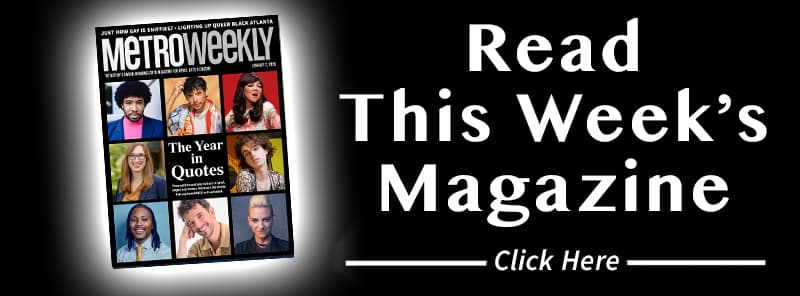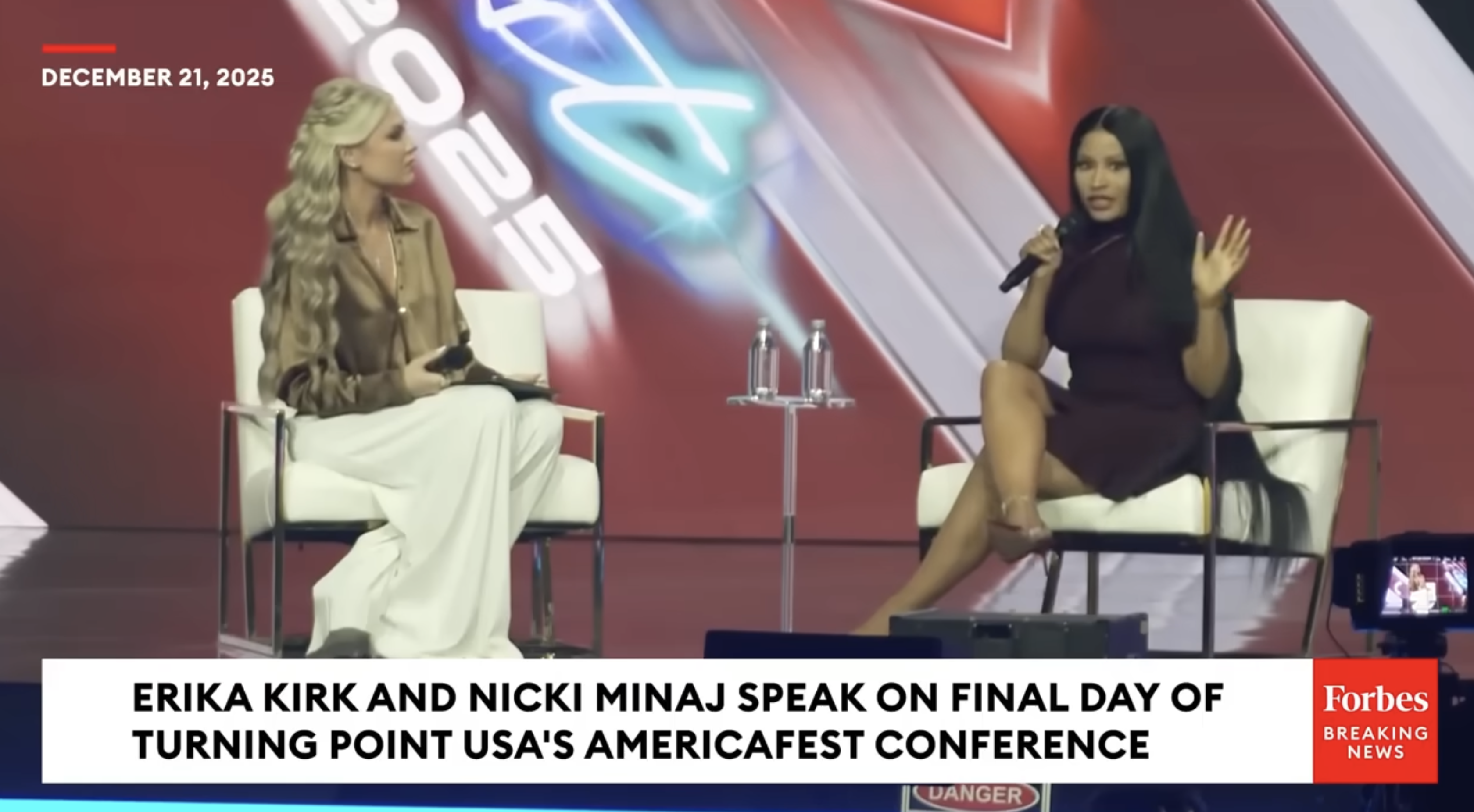Analysis: Vance and Walz Play Nice at Debate Lacking LGBTQ Issues
Both vice presidential candidates were praised for a "civil," issue-based debate that saw them boost their own favorability.

JD Vance successfully moderated his public image as a firebrand culture warrior with a polished, slick performance during the sole vice presidential debate of the 2024 election cycle.
However, the U.S. senator from Ohio marred his near-perfect performance in the final minutes of the debate: In response to a direct question, he refused to say whether Donald Trump had lost the 2020 presidential election.
Conversely, the Democratic vice presidential nominee, Minnesota Gov. Tim Walz, got off to a slow start in the first half of the debate, struggling to find his words at times. He slowly got stronger throughout the course of the evening, delivering particularly strong responses when the topic at hand shifted to abortion and health care.
The debate between the two men was remarkably civil, with Vance and Walz often appearing to agree with one another in what appeared to be a deliberate strategy by both presidential campaigns to present both men — who are not well-known by most voters — as reasonable, affable, moderate, and sensible.
Post-debate polls showed that the performance allowed both Vance and Walz to boost their favorability numbers, with Vance’s rising from 40% to 49% in a CBS snap poll, and from 30% to 41% in a CNN poll. Walz’s favorability rose from 52% to 60% in the CBS poll, and from 46% to 59% in the CNN poll.
The strategy appeared to benefit Vance more, allowing him to subvert his more authoritarian impulses and downplay the culture-war extremism that he has previously touted on the campaign trail to play to Republican base voters at former President Donald Trump campaign’s rallies.
A Harvard-trained lawyer, Vance easily parried moderators’ questions and cast the campaign’s positions on specific issues — for instance, child care, where Republicans do not support a national paid family leave program favored by Democrats — as reasonable and well thought-out.
The approach diluted some of Walz’s strongest assets — namely, the attack-dog role he has relished on the campaign trail — in what appeared to be a misguided attempt to appeal to center-right or moderate Republican voters (who will not vote for Democrats, regardless) by remaking the firebrand left-wing populist governor into a generically-appealing, “Midwestern nice” figure who would not come off as objectionable to a larger audience. In doing so, the Kamala Harris presidential campaign effectively neutered her running mate.
While mainstream media outlets and pundits raved and marveled about the debate’s civil tone and both men’s adherence to traditional debate decorum — with few zingers, personal attacks, or name calling — the net effect was that neither landed a fatal blow and that both men came across as congenial, “mainstream” figures.
Post-debate snap polls largely backed this finding up, with the CBS snap poll finding that debate-watchers split evenly on who “won” the debate, favoring Vance by a 42% to 41% spread over Walz, with 17% of viewers dubbing it a tie.
Similarly, the CNN snap poll found 48% of debate-watchers saying that they felt Walz was more in touch with the needs and problems of people like them, compared to 35% who said the same of Vance.
Viewers also found, by a margin of 48% to 39%, that Walz, rather than Vance, more closely shares their vision for America, with 8% saying both. At the same time, they also posited that Vance, by a 37% to 33% spread, was more effective in defending his running mate than Walz.
The debate was substantive and issue-based. But it largely avoided addressing contentious social issues like LGBTQ rights, transgender visibility, book bans, racial grievances, or so-called “wokeness” in schools and corporate America.
While that may come as a shock, given Vance’s extreme rhetoric and pandering to right-wing evangelicals around those very issues, the Republican vice presidential nominee was able to distance himself from his past comments and present himself as calm, in control, and largely unbothered by Walz’s attacks on the Republican ticket’s various policy stances.
He did at one point break character and attack moderators Margaret Brennan and Norah O’Donnell for “fact-checking” him on past false comments about Haitian migrants in Springfield, Ohio, whom Vance has blamed for placing a strain on city services and contributing to the spread of communicable diseases (conflicting with the findings of Ohio health experts), and whom Donald Trump has falsely accused of eating people’s pets.
While the moderators did not fact-check Vance directly on claims, with Brennan simply mentioning in an aside that the migrants in Springfield enjoy legal “temporary protected status,” Vance and Walz did squabble over the issue, prompting the moderators to cut both men’s microphones — the only time they did so during the debate.
The only other time Vance appeared to lose composure was when he attempted to deflect a question, posed to him by Walz, of whether he’d admit that Donald Trump lost the 2020 election — a proposition anathema to many Republican base voters, who have flirted with election denialism over the past four years due to their belief that mail-in voting is marred by fraud.
“Tim, I’m focused on the future,” Vance replied to the question about Trump’s electoral loss. “Did Kamala Harris censor Americans from speaking their mind in the wake of the 2020 COVID situation?”
“That’s a damning non-answer,” Walz said of Vance’s refusal to acknowledge President Joe Biden’s victory four years ago.
Because there was no mention of LGBTQ-related issues at any time during the nearly 90-minute debate, GLAAD criticized the moderators for not raising such issues, and the candidates for not addressing them — even when talking about topics relevant to LGBTQ family planning, such as access to abortion or fertility treatments like in vitro fertilization.
GLAAD also offered a fact-check of Vance’s false claim that Donald Trump “salvaged” the Affordable Care Act and its protections allowing people with pre-existing health conditions to obtain insurance coverage — which the former president actively tried to repeal while in office, as all Republicans wish to do.
“LGBTQ people were unfortunately again not included in the conversation between two candidates who have extensive LGBTQ records to talk about,” Sarah Kate Ellis, the president and CEO of the LGBTQ media advocacy organization said in a statement.
“The issues discussed tonight are LGBTQ issues and everyone’s concerns: the right to make our own private health care decisions, how best to support parents and families, and the right to have our votes counted and certified. As ballots arrive and early voting opens, it is now on every LGBTQ voter to fully familiarize themselves with the facts and records to ensure their vote leads us toward a safer, more prosperous future for all LGBTQ people and our allies.”
Get the latest LGBTQ news in your inbox. Subscribe to our free magazine and newsletter.
Support Metro Weekly’s Journalism
These are challenging times for news organizations. And yet it’s crucial we stay active and provide vital resources and information to both our local readers and the world. So won’t you please take a moment and consider supporting Metro Weekly with a membership? For as little as $5 a month, you can help ensure Metro Weekly magazine and MetroWeekly.com remain free, viable resources as we provide the best, most diverse, culturally-resonant LGBTQ coverage in both the D.C. region and around the world. Memberships come with exclusive perks and discounts, your own personal digital delivery of each week’s magazine (and an archive), access to our Member's Lounge when it launches this fall, and exclusive members-only items like Metro Weekly Membership Mugs and Tote Bags! Check out all our membership levels here and please join us today!



























You must be logged in to post a comment.